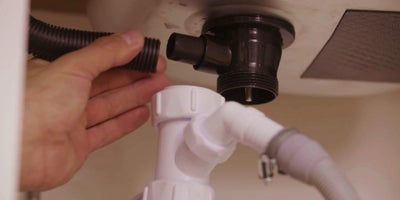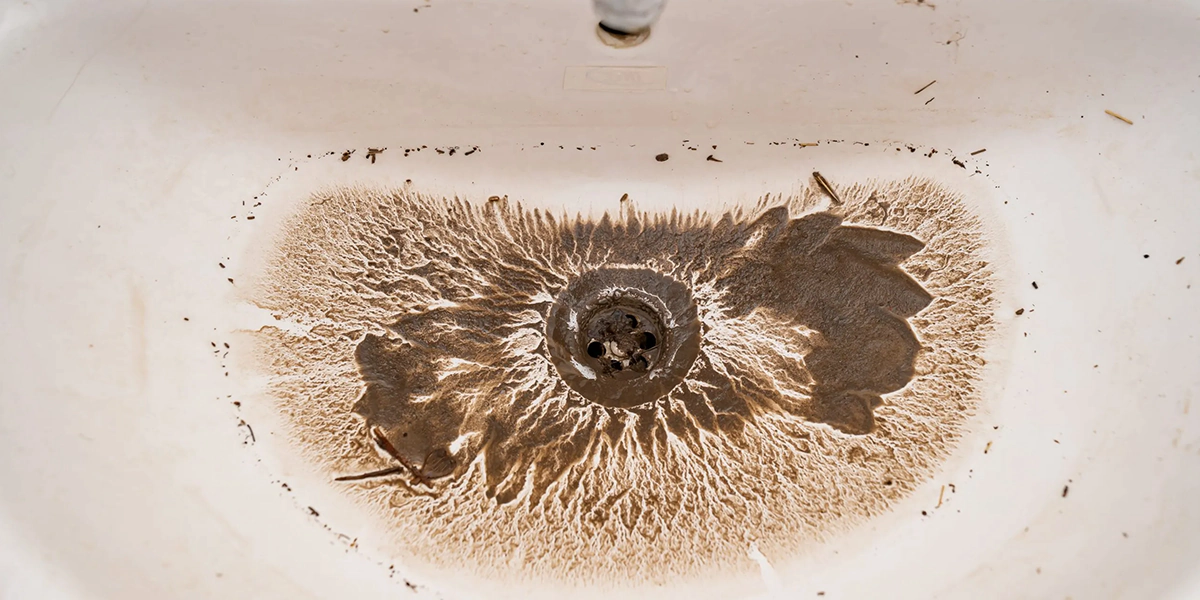Reliable Tips For Correcting A Slow-Draining Sink
Reliable Tips For Correcting A Slow-Draining Sink
Blog Article
We have come across the article involving 7 Ways To Fix A Slow-Draining Sink Before You Call A Plumber listed below on the web and felt it made sense to quickly share it with you in this article.

Introduction
We have actually all been there: You're brushing your teeth or cleaning your hands, and you see the water pooling in the sink. Instead of quickly swirling down the tubes, it remains, transforming your once-refreshing morning regimen into a mini overload scene. A slow-draining sink isn't simply aggravating; it's typically an indicator of bigger plumbing problems prowling under the surface area. The bright side is that the majority of slow-draining sinks can be taken care of with a little knowledge, a few basic devices, and some persistence. All set to tackle this project head-on? Let's roll up our sleeves and dive right in.
Recognizing the Root Causes Of a Slow-Draining Sink
Prior to you begin poking around in your pipelines, it assists to understand what could be creating the slowdown. Understanding the root cause makes it much easier to choose the best fix.
Devices and Products You'll Need
The right tools make all the distinction. Luckily, you won't require a completely stocked plumber's van to do the job.
Step-by-Step Overview to Taking Care Of a Slow-Draining Sink
Now, allow's enter into the nitty-gritty. This detailed process will certainly assist you through straightforward techniques to recover your sink's drainage.
Step 1: Get Rid Of and Clean the Stopper
Usually, the stopper (that small plug you lower to obstruct water) is the first culprit. Remove it thoroughly and wipe any kind of hair or crud trapped around its base. Rinse it extensively prior to placing it back in place.
Action 2: Use a Bettor to Remove Particles
Got that bettor prepared? Setting it over the drain and provide it a couple of firm pumps. The idea is to develop suction that can loosen up any type of obstruction. If you see littles particles drifting up, you're on the right track.
Step 3: Try a Drain Snake or Wire Hanger
If the plunger doesn't do the trick, it's time to draw out the drainpipe serpent. Delicately feed it right into the drainpipe and twist as you go. You may feel some resistance-- that's likely the clog. Keep twisting and pulling until you get rid of the blockage. If you don't have a drainpipe snake, a straightened out cord hanger can work in a pinch.
Tip 4: Apply a DIY Drain Cleanser
An all-natural cleaner made from cooking soft drink and vinegar can break down residual grime. Pour half a cup of cooking soda into the drainpipe, followed by half a mug of vinegar. Let it fizz for around 15 minutes, after that flush with warm water. This chain reaction typically does marvels for small blockages.
Step 5: Reconstruct and Evaluate the Sink
Put everything back with each other and run the tap. Does the water currently swirl down the drain at a commendable speed? If yes, offer yourself a pat on the back. If not, don't misery-- there are still a few more tricks up your sleeve.
Important Tools for Do It Yourself Repairs
A plunger is your go-to beginning point. A little, sink-sized plunger develops suction that can dislodge small blockages. For even more consistent obstructions, a drain snake (occasionally called a plumber's auger) functions marvels. A set of gloves, a flashlight, and possibly a pair of safety goggles are likewise useful.
Recommended Cleaning Solutions
Moderate recipe soap and hot water can assist break down greasy accumulation. A combination of baking soda and vinegar is a tried and true natural home remedy, and enzymatic cleansers provide an even more environmentally friendly strategy. Maintain chemical drainpipe cleaners as a last resource, as they can be severe on your pipelines.
Common Wrongdoers Behind Slow Water Drainage
So, what's blocking things up? Usually, it's a combination of everyday particles-- assume hair, soap residue, tooth paste deposit, and remaining food fragments. With time, these little bits build up and hold on to the pipeline walls, gradually narrowing the flow and making it harder for water to go through. Sometimes, mineral deposits from hard water can additionally include in the crud, producing the ideal storm for persistent blockages.
When is it Time to Act?
If you notice the water draining pipes slower than typical, it's an excellent idea to step in quicker as opposed to later. Waiting as well long could result in finish blockages, unpleasant smells, or even pipe damage. If the water takes greater than a couple of secs to clear out after shutting off the tap, consider it a warning and get ready to place on your DIY hat.
Safety First: Safety Measures and Prep work
Prior to you launch into unclogging setting, think of safety. You're dealing with potentially dirty water and debris, so slip on a pair of gloves. If you're making use of chemical cleansers, ensure the area is well-ventilated and adhere to the directions on the label.
Protective Equipment and Workspace Arrangement
Lay down some old towels or rags around the sink location to catch dashes. Eliminate any kind of items that may enter your way, like soap dispensers or toothbrush holders. See to it you have good lights-- get a flashlight if required.
Alternate Techniques for Stubborn Clogs
Not all blockages are developed equal. If your sink still rejects to cooperate, think about these alternate remedies.
Sodium Bicarbonate and Vinegar Technique
We currently touched on this, yet it's worth noting once again. This mild, environment-friendly approach is safer than chemical cleaners and usually quite effective.
Enzymatic Drainpipe Cleansers
Enzyme-based cleaners make use of natural germs to absorb organic matter. They're a superb selection if you're wanting to avoid severe chemicals. Just bear in mind, they might take a bit longer to function their magic.
Chemical Drain Cleaners: Pros and Cons
Chemical cleaners can blow up through challenging blockages fast, but they're not without downsides. They can produce heat and fumes, damage pipelines if used exceedingly, and position ecological dangers. Use them sparingly, and constantly comply with the instructions thoroughly.
Safety Nets to Maintain Your Sink Flowing
Prevention is the most effective remedy. By adopting a couple of easy routines, you can maintain your sink from slowing down to begin with.
Routine Cleansing Behaviors
Wipe down the sink basin and component location on a regular basis. Remove hair or food fragments before they have an opportunity to wash down the drainpipe.
Avoiding Hazardous Compounds Down The Tubes
Hesitate prior to disposing coffee premises, oil, or fibrous vegetable scraps down the sink. These wrongdoers hold on to pipeline wall surfaces, creating blockages over time.
Regular Upkeep Checks
Arrange a quick month-to-month evaluation. Run hot water via the sink for a few minutes, paying attention to the circulation. If it seems slow-moving, act quick prior to it ends up being a full-blown blockage.
When to Call a Professional Plumbing Professional
Occasionally, no matter just how hard you attempt, that clog simply won't budge. That's when it's time to generate the pros.
Indications That Indicate an Extra Severe Problem
If your sink drains pipes slowly despite multiple efforts, or if you see water backing up in other components (like your shower or commode), you might have a much more serious pipes concern lurking deeper in the system.
Balancing DIY Initiatives with Expert Help
While DIY can conserve you cash and supply a sense of accomplishment, there's no pity in calling an expert. A specialist plumber can examine your whole pipes setup, making sure there's no underlying damages or long-lasting problem that can cost you a lot more in the future.
Comparing Prices and Long-Term Solutions
Before making a decision, consider the big picture. A low-cost, quick fix could address the issue temporarily, however investing in a much more permanent service might save you money and stress in the future.
Considering the Expenses of Do It Yourself vs. Expert Fixes
DIY repairs usually cost bit greater than the rate of a plunger or a bottle of baking soft drink. Specialist services, on the other hand, featured a cost however might stop repetitive issues and expensive repair services later.
Investing in High Quality Fixtures and Upgrades
If your sink's style adds to regular blockages, it may be worth updating to higher-quality fixtures or altering the pipes format. Consider this a financial investment in your home's performance and comfort.
Conclusion
A slow-draining sink can seem like a minor irritability, however it's frequently a sign that your pipes needs a little TLC. By understanding the origin, using the right tools and techniques, and devoting to basic safety nets, you can keep your sink moving easily. And when all else falls short, never think twice to contact a specialist-- your home's plumbing is worth the financial investment in treatment and maintenance.
Three Common Ways to Fix a Slow Drain
Baking Soda Method
Boil a full pot of water. Measure out cup of baking soda and pour it down the drain. Then take cup of the magical cleansing substance known as white vinegar and drop that down there too. Allow the mixture to fizz in the drain for five minutes as the vinegar and baking soda combine. Now dump in that whole pot of boiling water. This combination of cleaning substances should clear out anything that is causing your sink to drain slowly. If it doesn t...
Zip-It
If the baking soda method doesn t clear out your drain, it may be because a significant amount of hair and/or other debris has collected there and you need to remove it. Purchase a Zip-It tool at any home improvement or hardware store and insert it into your drain. It will catch any collected hair or debris that s blocking the flow of water. Pull it out. If it s got a big clump of hair, etc. on the end, you ve probably got your culprit.
Drain Cleaner
If these methods don t work, there is the standard drain cleaner that you can also buy in a hardware store or even your local grocery store. It s better if you can use a household solution, but these drain cleaners often work in a pinch. They re very simple to use. You generally just dump them in your drain and wait. If even this method is not effective, it may be time to call the plumber.
https://www.mrrooter.com/oneida/about-us/blog/2017/july/three-common-ways-to-fix-a-slow-drain/

I'm certainly very interested in Solved! How to Fix a Slow Sink Drain and I am assuming you enjoyed reading the entire blog posting. Loved our blog? Please quickly share it. Help others check it out. Thank-you for taking the time to read it.
Call Today Report this page